Taiwanese buildings tremble and tilt after largest quake in 25 years
Rescue efforts have pushed ahead after a 7.4 magnitude earthquake rocked the island of Taiwan, toppling buildings and prompting tsunami warnings across Japan and the Philippines
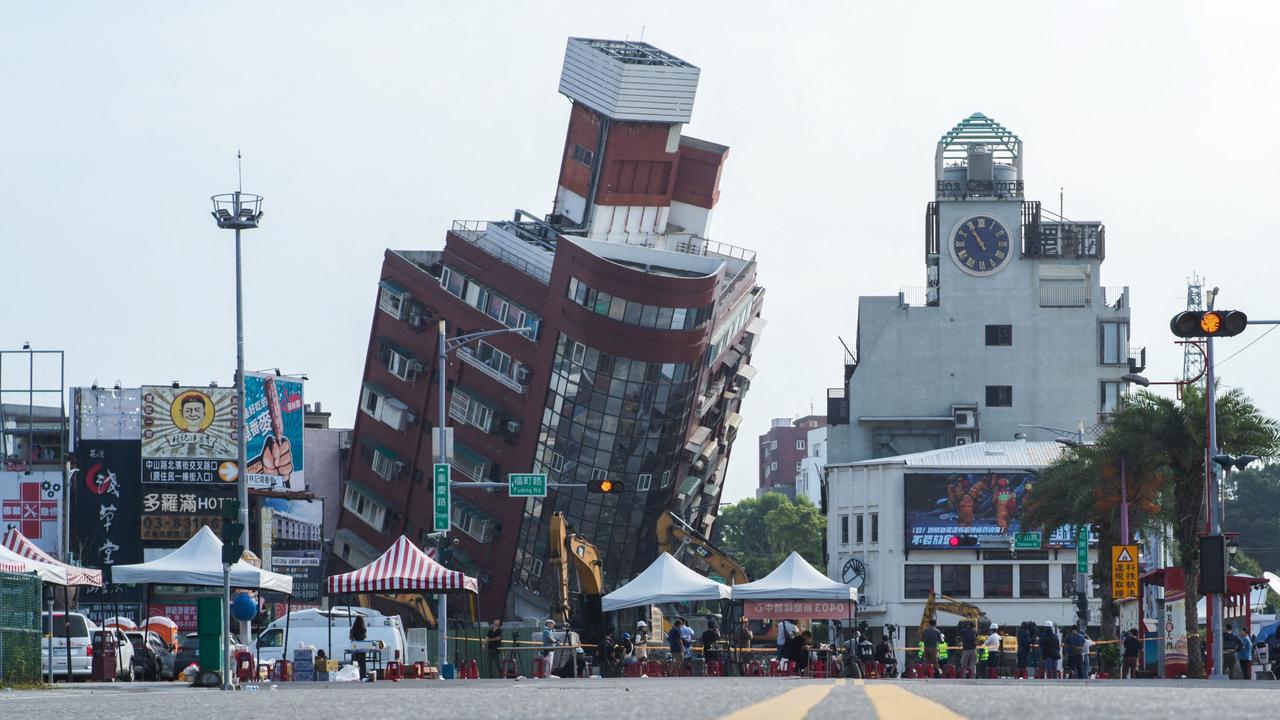
READING LEVEL: RED
Rescue efforts have continued in Taiwan after the island nation was hit by its biggest earthquake in 25 years on Wednesday.
A 7.4 magnitude earthquake hit just off the coast of Hualien, a city in Taiwan’s east, shortly before 8am local time, causing strong tremors that could also be felt in the neighbouring lands of China and Japan.
Sadly, at least nine people have lost their lives and more than 900 have been injured as rescuers scramble to find dozens still trapped.
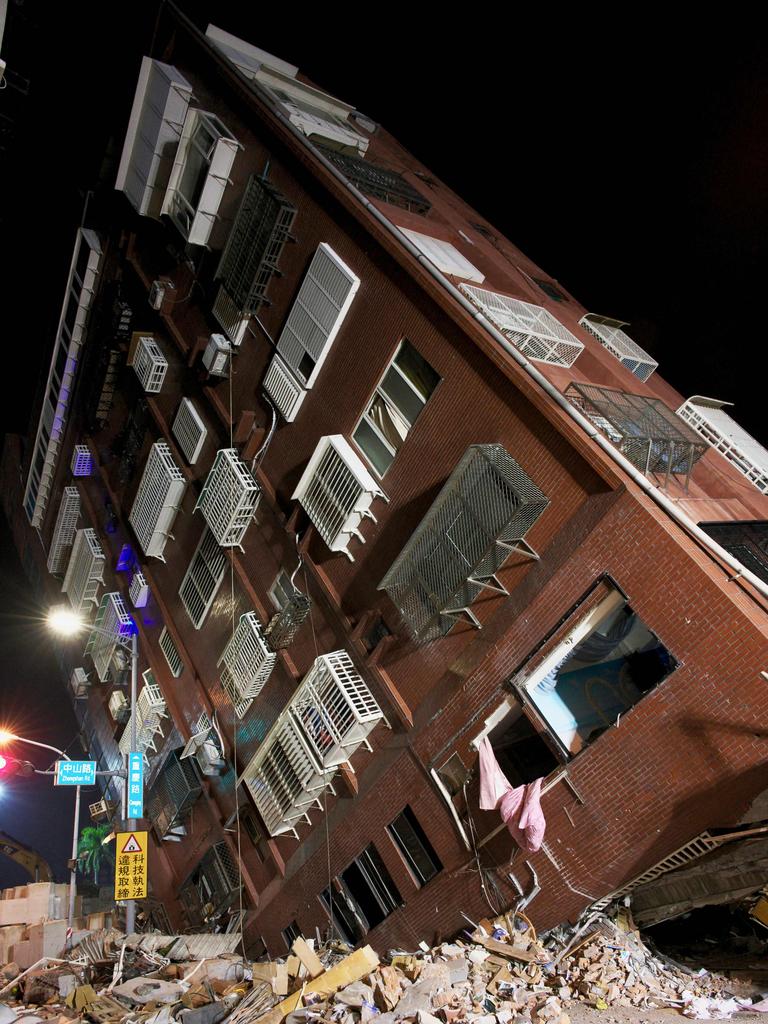
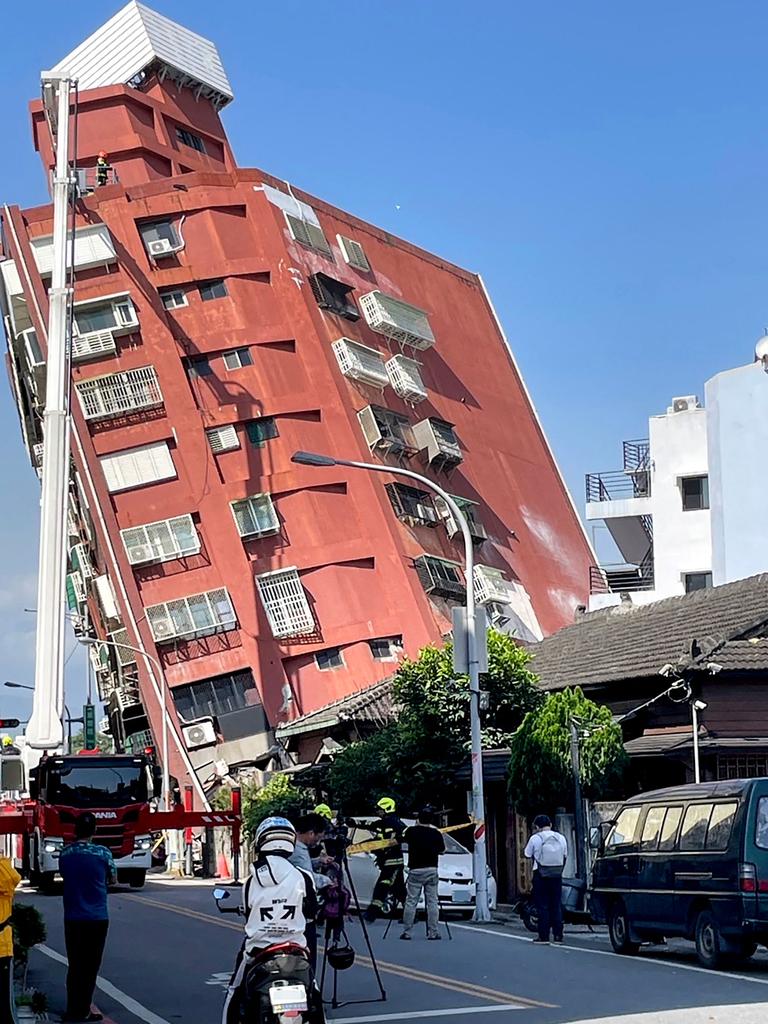
The United States Geological Survey (USGS) said the epicentre was about 18km south of Hualien City, at a depth of 34.8km.
Shortly after the quake, tsunami warnings were issued across Japan and the Philippines before being downgraded hours later.
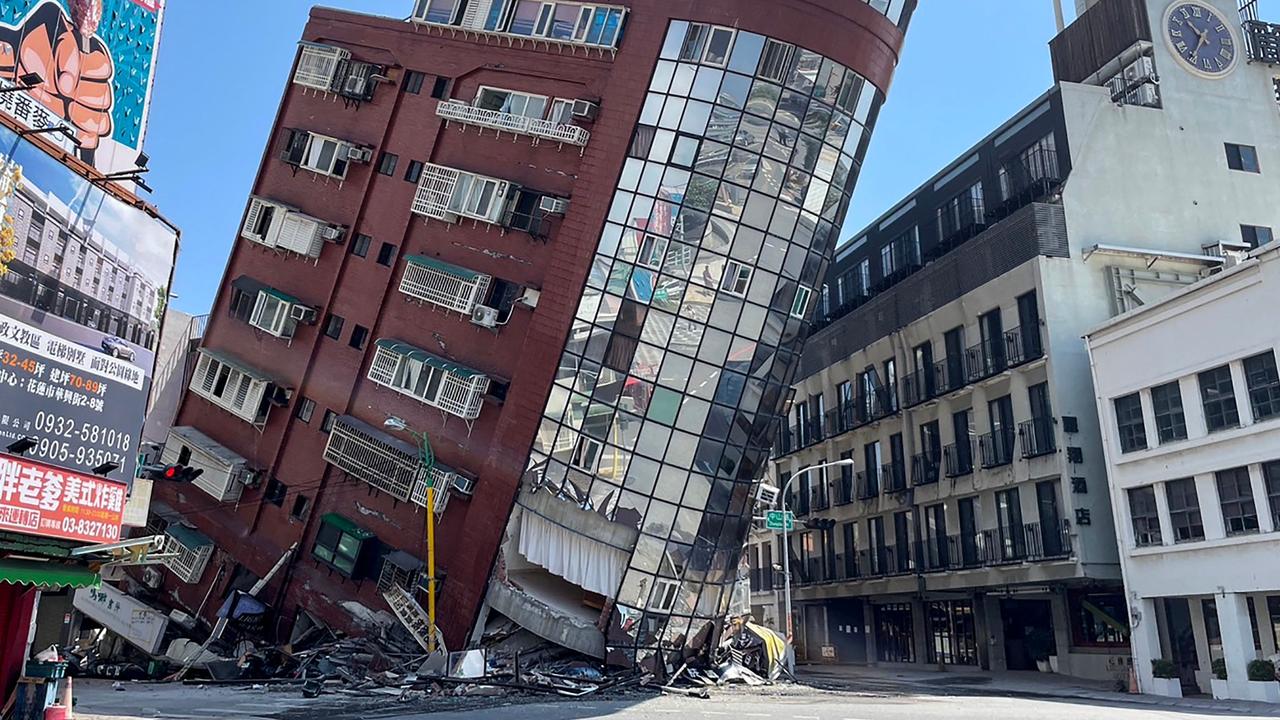
More than 50 aftershocks have since been recorded and weather officials have warned there could be further quakes as big as 6.5 to 7 magnitude in the coming days.
Videos and photos from Taiwan have shown buildings tilted at 45 degree angles and dust clouds caused by landslides brought about by the quake.

The power of the quake was captured live as news anchors delivered their breakfast bulletins, steadying themselves against giant screens as their sets swayed.
Video showed rescuers using ladders to help trapped people out of windows. Strong tremors at Taipei in northern Taiwan forced the subway system to briefly close.
Fire authorities have already evacuated about 70 people trapped in tunnels near Hualien city, but dozens of others remained missing.
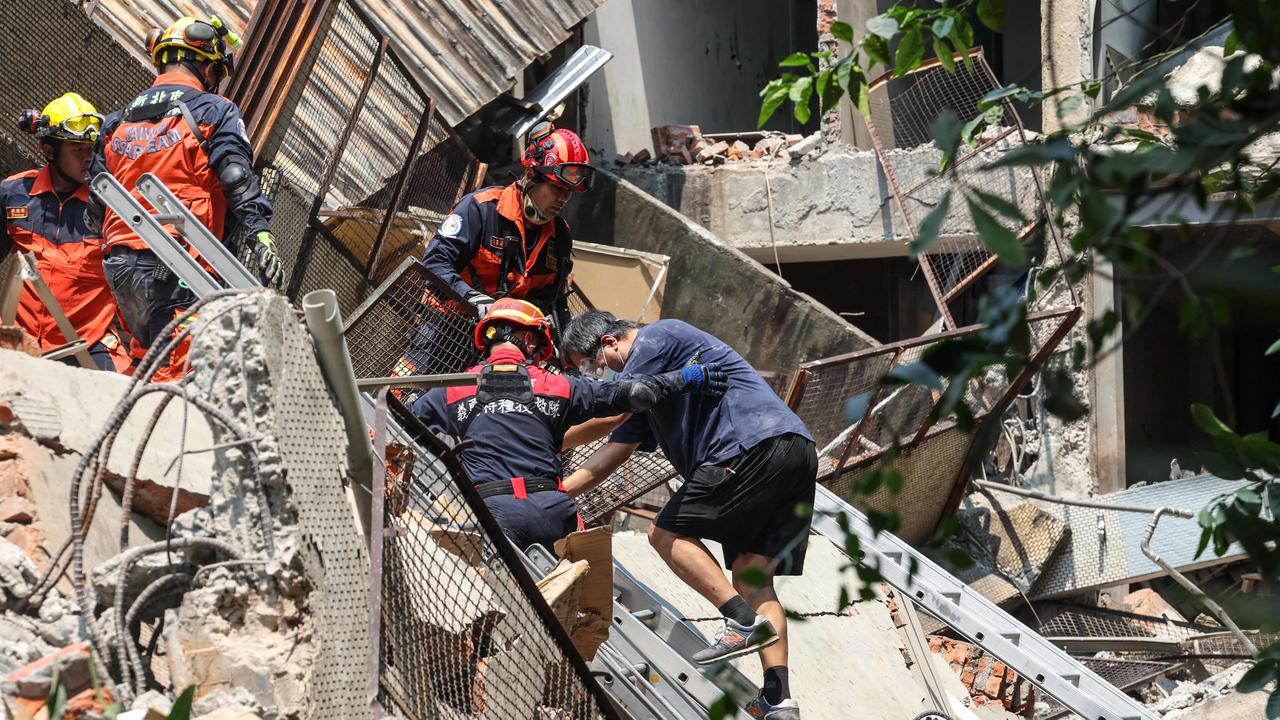
“At present the most important thing, the top priority, is to rescue people,” said President-elect Lai Ching-te, speaking outside one of the collapsed buildings in Hualien.
Taiwan sits on the Pacific “Ring of Fire”, a tectonic fault line where earthquakes are common.
Officials said the earthquake was the strongest felt on the island in decades.
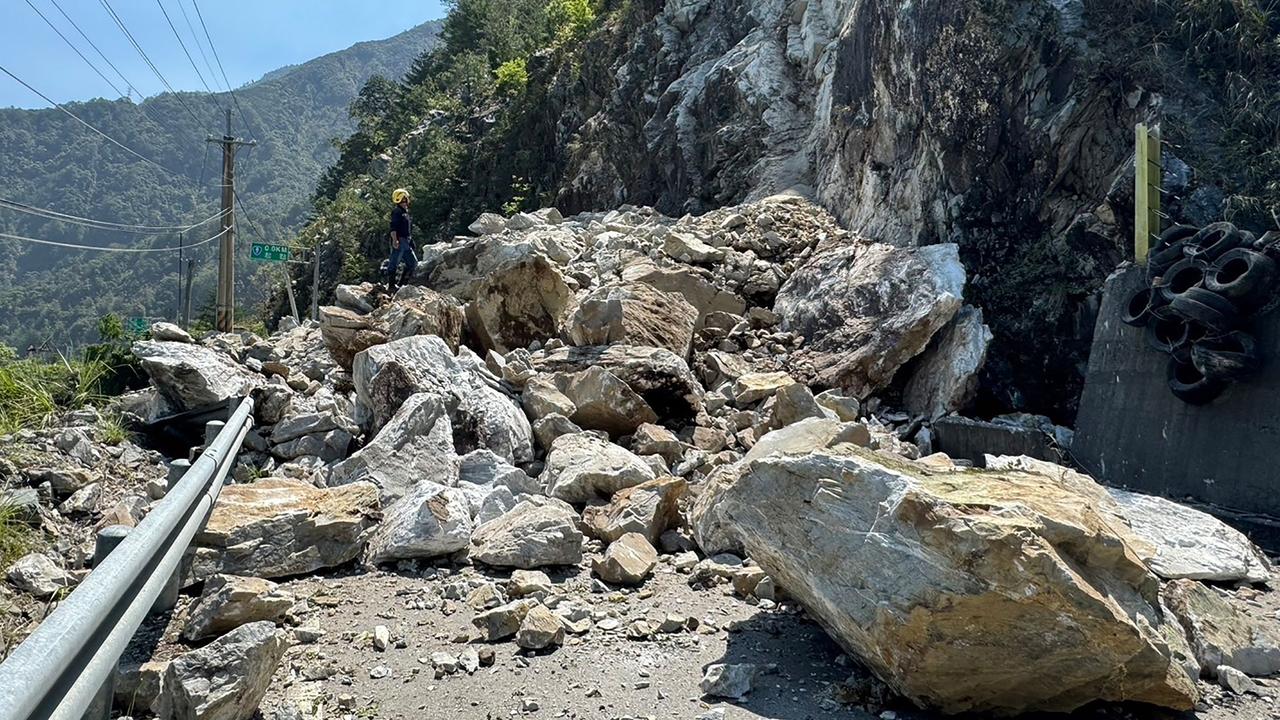
“The earthquake is close to land and it’s shallow. It’s felt all over Taiwan and offshore islands,” said Wu Chien-fu, director of Taipei’s Central Weather Administration’s Seismology Center.
“It’s the strongest in 25 years since the (1999) earthquake.”
A 7.6-magnitude quake hit Taiwan in September 1999. About 2400 people tragically lost their lives, making it the worst natural disaster in the island’s history.
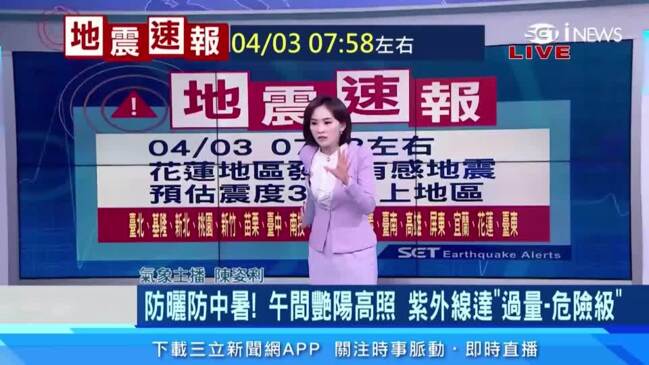
POLL
GLOSSARY
- epicentre: the point on the Earth’s surface directly above an earthquake
- tectonic fault line: cracks in the Earth’s crust where tectonic plates meet, making them prone to earthquakes
- aftershocks: lower intensity earthquakes that follow the main quake
EXTRA READING
Iceland volcano still spewing lava
Largest quake in 120 years shakes Melbourne
Capturing ‘impossible’ scale of quake disaster
QUICK QUIZ
1. What size was the earthquake that struck Taiwan?
2. Where was the epicentre of the quake?
3. Which neighbouring countries were impacted by the quake?
4. What is the name of the tectonic fault line under Taiwan?
5. What was Taiwan’s worst natural disaster in recorded history and when did it occur?
LISTEN TO THIS STORY
CLASSROOM ACTIVITIES
1. Do you know why?
Do you know why some countries are more likely to experience severe earthquakes than others? Use information in the story and perhaps your research skills to find out. Use the information that you have found to write a report on this.
Time: allow at least 40 minutes to complete this activity
Curriculum Links: English, Science
2. Extension
How do you think earthquake safe buildings are designed? Write a list of ideas and create a design for an earthquake safe office building or house.
Time: allow at least 15 minutes to complete this activity
Curriculum Links: English, Science, Design and Technologies
VCOP ACTIVITY
Summarise the article
A summary can be a really good way to grab the main idea plus some key points in the article as a highlight. Think of the summary like a little advertisement or extract you could use to encourage people to read the article in detail. You want to give them an overview of the article that includes the main idea (being able to tell the audience what the article is about in one sentence), plus a few of the key points of the information.
Remember to re-read your summary to check that it is clear, concise and makes sense to the audience who haven’t read the article yet. You need to make language choices that allow you to explain the information in only a few sentences.

